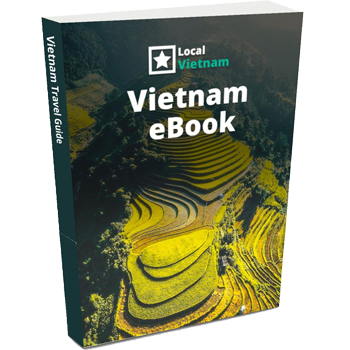History of Vietnam’s dynasties & emperors
Vietnam’s dynastic system was the foundation of its governance for over a millennium, with emperors serving as political, cultural, and spiritual leaders. These rulers were seen as the embodiment of divine authority, tasked with protecting the nation, maintaining harmony, and fostering cultural development.
The history of Vietnam’s emperors is intertwined with periods of local rule and domination by foreign powers, most notably the nearly 1,000 years of Chinese occupation. Despite these interruptions, Vietnamese dynasties like the Ly, Tran, Le, and Nguyen flourished, asserting their independence and reinforcing Vietnam’s unique identity.
Vietnamese emperors symbolize the resilience of the nation, leading military campaigns, instituting reforms, and championing the arts. For a deeper dive into the history of Vietnam’s dynasties, visit Vietnamese Dynasties.
Contributions of Vietnam’s emperors
Vietnamese emperors were pivotal in shaping the nation’s identity through their governance, cultural patronage, and military leadership. As heads of state, they centralized power, established legal frameworks, and promoted Confucian education systems that emphasized morality and governance.
Governance and reforms
Emperors like Minh Mang of the Nguyen Dynasty introduced administrative reforms that strengthened governance and expanded territorial control. Others, such as Le Loi of the Le Dynasty, implemented legal codes like the Hong Duc Code, which emphasized justice and Confucian principles.
Cultural patronage and architecture
Vietnam’s emperors were great patrons of the arts and architecture. They commissioned iconic structures like the Imperial Citadel of Thang Long (Ly Dynasty) and the royal tombs in Hue (Nguyen Dynasty). These sites showcase intricate designs blending Vietnamese traditions with foreign influences, leaving an enduring cultural legacy.
Military leadership and independence
Many emperors led the nation during critical periods of resistance. Tran Hung Dao of the Tran Dynasty famously repelled Mongol invasions, while Ngo Quyen secured Vietnam’s independence from Chinese rule with the victory at the Battle of Bach Dang River in 939 CE. These leaders exemplify the emperors’ role in defending Vietnam’s sovereignty and unifying the nation.
Through these contributions, Vietnamese emperors left an indelible mark on the nation’s identity, ensuring its resilience and rich cultural heritage.
How many emperors did Vietnam had?
Vietnam has had approximately 125 emperors across its various dynasties, from ancient times through the Nguyen Dynasty. This number includes rulers from significant dynasties such as the Ly, Tran, Le, and Nguyen, which collectively shaped Vietnam’s history and identity.
Key Rulers from Major Dynasties
- Ly Dynasty (1010–1225): Known for its cultural and political achievements, this dynasty had 9 emperors, beginning with Ly Thai To, who established the capital in Thang Long (modern-day Hanoi).
- Tran Dynasty (1225–1400): The dynasty saw 12 emperors, including military leader Tran Hung Dao, who defeated the Mongols in the 13th century.
- Le Dynasty (1428–1789): Spanning nearly four centuries, this dynasty had a mix of powerful and figurehead emperors, totaling over 30 rulers.
- Nguyen Dynasty (1802–1945): As the last imperial dynasty, it had 13 emperors, starting with Gia Long and ending with Bao Dai.
Short-lived and puppet emperors
Vietnam’s history also includes emperors with brief or contested reigns. For instance:
- Duc Duc (Nguyen Dynasty): Reigned for just three days before being deposed.
- Puppet Emperors: Under colonial influence, rulers like Dong Khanh and Bao Dai were installed or heavily controlled by foreign powers, particularly the French.
Discrepancies in counting
The exact number of emperors can vary depending on how one counts rulers during periods of civil conflict or foreign domination. For example:
- Rival Dynasties: During the 16th century, the Le and Mac dynasties coexisted, each claiming legitimacy.
- Resistance Leaders: Figures like Ham Nghi, who resisted French colonial forces, are often included in the count despite limited formal rule.
While the precise number may be debated, the legacy of these emperors underscores their crucial role in Vietnam’s history and their impact on its cultural and political landscape.
Does Vietnam still as an emperor?
Vietnam no longer has an emperor. The monarchical system ended with the abdication of Emperor Bao Dai in 1945, marking the conclusion of the Nguyen Dynasty and Vietnam’s imperial era. Bao Dai relinquished his throne in favor of the revolutionary government led by Ho Chi Minh, paving the way for the establishment of the Democratic Republic of Vietnam, now the Socialist Republic of Vietnam.
The end of the monarchy
The Nguyen Dynasty, which had ruled Vietnam since 1802, faced mounting challenges during the French colonial period. By the mid-20th century, the monarchy had lost most of its authority, with Bao Dai reduced to a symbolic figure under French control. His abdication in 1945 signaled the shift from feudal governance to a modern state aligned with revolutionary ideals.
Descendants of the Nguyen Dynasty
While the Nguyen royal family no longer holds political power, descendants of the dynasty still exist today. Some reside in Vietnam, while others live abroad. They occasionally participate in cultural and historical events, serving as symbolic reminders of the country’s imperial past.
For instance, members of the royal family have attended ceremonies at the Imperial City of Hue, the former seat of Nguyen power, to honor their ancestors and preserve the dynasty’s legacy. However, their role remains purely cultural, with no political influence in modern Vietnam.
The legacy of Vietnam’s emperors and their contributions to the country’s history and culture are now celebrated through historical sites, festivals, and museums, offering a window into the nation’s rich imperial heritage.
Most famous or noticeable Vietnamese emperors
Vietnam’s history is marked by several emperors who played pivotal roles in shaping the nation’s identity, governance, and resilience. Here are some of the most influential rulers:
Gia Long (1802–1820)
Founder of the Nguyen Dynasty and Unifier of Vietnam
Gia Long, born Nguyen Anh, was the first emperor of the Nguyen Dynasty. After decades of conflict, he unified Vietnam under one rule, established Hue as the imperial capital, and centralized governance. His reign laid the foundation for modern Vietnam.
Minh Mang (1820–1841)
Confucian Reformer and Expansionist
Known for his administrative reforms and strong Confucian ideals, Minh Mang expanded Vietnam’s territory, strengthened governance, and resisted Western influences. His reign is considered one of the Nguyen Dynasty’s golden periods, emphasizing tradition and national unity.
Tran Hung Dao (1228–1300)
The General Who Repelled the Mongols
Although not an emperor, Tran Hung Dao’s influence during the Tran Dynasty is legendary. He led Vietnam to victory against Mongol invasions three times, solidifying his place as one of Vietnam’s greatest military leaders. His leadership continues to be celebrated as a symbol of resilience and patriotism.
Le Loi (1428–1433)
Liberator and Founder of the Le Dynasty
Le Loi led Vietnam’s liberation from the Ming Dynasty and established the Le Dynasty, one of Vietnam’s most culturally and politically significant periods. His strategic brilliance and leadership are immortalized in Vietnamese folklore and literature.
Tu Duc (1848–1883)
The Poet Emperor
Tu Duc’s reign was marked by cultural achievements and colonial challenges. Known for his poetry and introspective nature, he faced increasing French encroachment. His Tu Duc Tomb, a retreat he built during his lifetime, reflects his artistic and philosophical inclinations.
Bao Dai (1926–1945)
The Last Emperor
Bao Dai, the final ruler of the Nguyen Dynasty, witnessed Vietnam’s transition from a monarchy to a modern republic. His abdication in 1945 marked the end of Vietnam’s imperial era. Though criticized for his perceived complacency during turbulent times, he remains a significant figure in Vietnam’s history.
Each of these emperors contributed uniquely to Vietnam’s story, whether through unification, cultural advancements, military leadership, or their symbolic roles during periods of great change. Their legacies are preserved in the historical sites, festivals, and folklore that continue to captivate those interested in Vietnam’s rich past.


